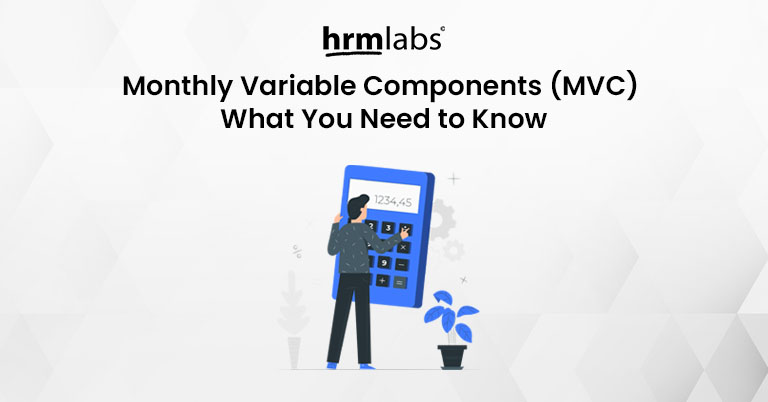In Singapore, salary structures can be more complex than they appear at first glance. Beyond the basic salary, many companies include a component known as the Monthly Variable Component (MVC) in their compensation packages. But what exactly is MVC, and why is it important for both employers and employees to understand it? Let’s dive into the details.
What is Monthly Variable Component (MVC)?
The Monthly Variable Component (MVC) is a portion of an employee’s salary that can vary based on certain criteria. Such as company performance, individual performance, or other predefined factors. Unlike the fixed basic salary, which remains constant, MVC offers flexibility and can fluctuate each month depending on these variables.
Typically, MVC is used by companies to better manage wage costs and align employee compensation with business performance. During profitable periods, the MVC might increase, rewarding employees for their contribution to the company’s success. Conversely, during tougher economic times, companies might reduce the MVC, helping to manage costs without resorting to retrenchments or pay cuts.
Typical Components of MVC
MVC can include various elements depending on the company’s policies. Some of the common components that might be included in MVC are:
- Performance Bonuses: This could be tied to individual performance, team performance, or overall company performance.
- Productivity Incentives: Bonuses linked to specific productivity metrics, such as meeting or exceeding sales targets.
- Attendance Bonuses: Rewards for employees who maintain excellent attendance records, thus contributing to business continuity.
The Legal Framework Surrounding MVC in Singapore
In Singapore, the implementation of MVC is guided by tripartite guidelines developed by the Ministry of Manpower (MOM), the National Wages Council (NWC), and employer groups. These guidelines encourage companies to adopt MVC as a way to provide greater wage flexibility. Particularly in times of economic uncertainty.
One key aspect of the legal framework is transparency. Employers are expected to clearly communicate to their employees how the MVC is calculated, what factors influence its fluctuation, and how it is tied to both individual and company performance. This ensures that employees understand how their MVC is determined, promoting trust and transparency in the workplace.
Another important consideration is the compliance aspect. While MVC offers flexibility, it is crucial for employers to ensure that any adjustments to MVC still comply with Singapore’s Employment Act. This includes ensuring that reductions in MVC do not result in wages falling below the minimum salary thresholds stipulated by law.
Why Transparency in MVC Entitlements Matters
Transparency in MVC is not just a legal requirement—it’s also a matter of good business practice. When employees clearly understand how their MVC is calculated, it fosters a sense of fairness and can significantly boost morale. Employees are more likely to be motivated when they see a direct link between their performance and their compensation.
Moreover, transparency helps avoid disputes and misunderstandings, which can arise if employees feel that their variable pay is being unfairly adjusted. By maintaining open communication about MVC policies, companies can create a more positive and collaborative work environment.
Simplifying MVC with HRMLabs
Managing MVC calculations manually can be a daunting task, especially for businesses with a large workforce or complex pay structures. Errors in calculation can lead to payroll discrepancies, which can, in turn, lead to compliance issues and employee dissatisfaction.
This is where HRMLabs can make a significant difference. HRMLabs’ advanced HR and payroll system is designed to handle the complexities of MVC with ease. By automating the calculation process, HRMLabs ensures accuracy and consistency in payroll management. The system also offers transparent reporting features, allowing both employers and employees to clearly see how MVC is calculated and applied.
Additionally, HRMLabs’ integrated system connects payroll with attendance and performance management, ensuring that all relevant data is considered when calculating MVC. This not only streamlines the payroll process but also helps businesses maintain compliance with Singapore’s labor laws, reducing the risk of costly errors or disputes.
Wrapping it Up
Understanding and managing Monthly Variable Components (MVC) is crucial for businesses in Singapore to ensure fair and compliant compensation practices. By leveraging a modern HR and payroll system like HRMLabs, companies can simplify the management of MVC, enhance transparency, and ultimately create a more motivated and productive workforce.
If your business is looking to take the hassle out of MVC calculations and ensure smooth payroll management, HRMLabs is here to help. Start streamlining your HR processes today and see how effortless compliance and transparency can be!


